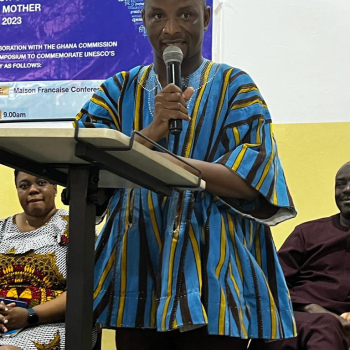THE MORPHO-SYNTACTIC CHARACTERIZATION OF LIKPAKPAANL REFLEXIVE PRONOUNS

| 233248821519 | |
| asissah@uew.edu.gh | |
| Download CV |
THE MORPHO-SYNTACTIC CHARACTERIZATION OF LIKPAKPAANL REFLEXIVE PRONOUNS
This paper examines the morpho-syntactic and semantic characteristics of reflexives in Likpakpaanl, a Mabia (Gur) language spoken in Northern Ghana. The analysis is cast within the theoretical tenets of the Government and Binding (GB) Theory of Chomsky (1981, 1986). Data for the study were drawn from four different sources including: natural text, elicitations, recording of speeches as well as native speaker intuitions. We show that Likpakpaanl reflexives are bi-morphemic comprising the personal pronominal and the suffix -bà. The pronoun differs depending on the plurality or singularity of the antecedent, a motivation for our argument that the suffix -bà does not inflect for number. We further show that Likpakpaanl reflexives are clause-bound since they take their interpretation from a local antecedent DP. We interpret this to mean that they match the behavior of anaphors as outlined by Principle A of the GB theory and typological assumption that bi-morphemic reflexives are strictly local and cannot pick up their reference from an antecedent that is not within the same clause. Finally, we investigate the nature of self-intensifiers arguing that they have same morphological identity as reflexives. However, whereas the intensifiers obligatorily require the morphological presence of the focus marker lé, reflexives require no focus marker in the syntactic characterization. This paper brings data from a lesser known language and adds to our typological knowledge of reflexives.
